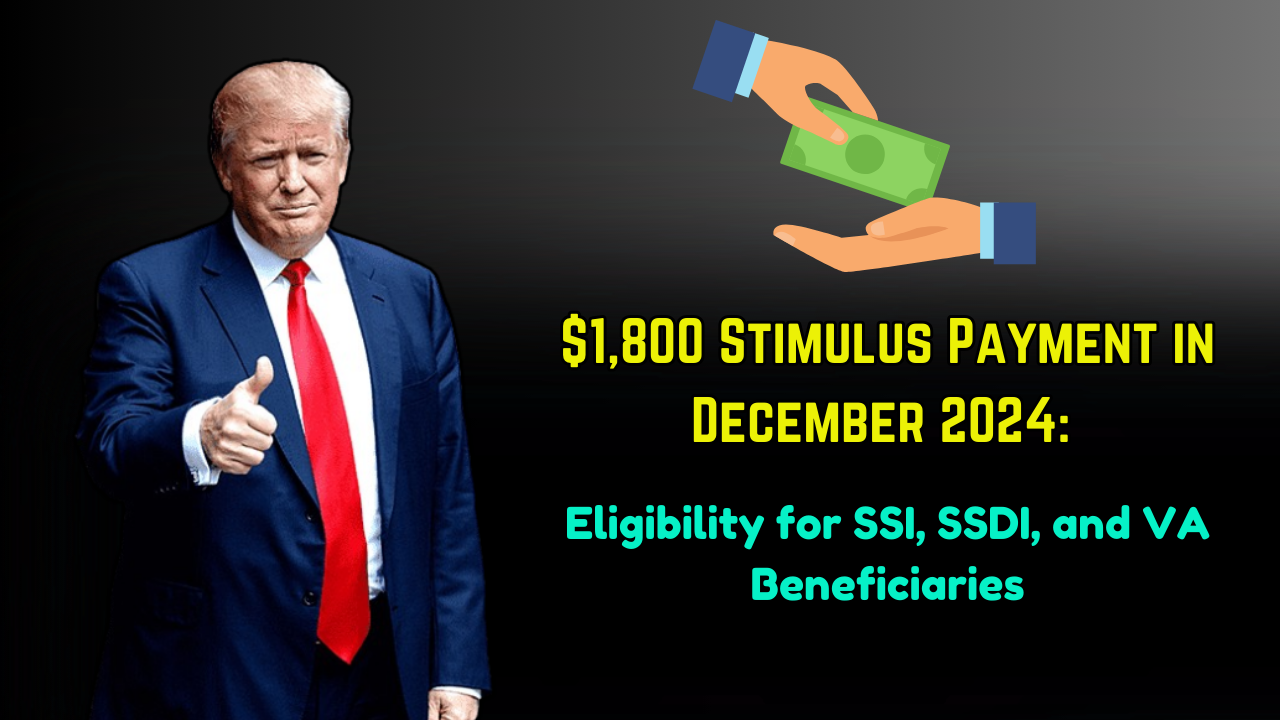In recent weeks, speculation has spread about a possible $1,800 automatic stimulus payment for beneficiaries of SSI (Supplemental Security Income), SSDI (Social Security Disability Insurance), and VA (Veterans Affairs) benefits. While this rumor has sparked hope among many Americans, it is important to separate fact from fiction. Here, we’ll explore the details behind these claims, clarify what’s true, and guide you on how to stay updated about any potential financial assistance.
The $1,800 Stimulus Payment Rumor
The rumor suggests that SSI, SSDI, and VA beneficiaries may receive an automatic $1,800 payment this December. However, as of early December 2024, no official announcements or confirmations have been made by government agencies such as the IRS or the Social Security Administration (SSA). This has led many to question the validity of the claim.
While such payments have been distributed in the past during times of crisis, such as the COVID-19 pandemic, there are currently no active legislative proposals for new stimulus checks targeting these groups.
What’s Driving the Speculation?
This rumor likely stems from widespread discussions on social media and misunderstandings of past government relief efforts. Historically, payments under programs like the CARES Act and the American Rescue Plan provided direct financial aid to vulnerable populations, including:
- 2020 CARES Act: Payments of up to $1,200 for eligible individuals.
- 2021 Consolidated Appropriations Act: Payments of $600.
- 2021 American Rescue Plan: Payments of $1,400 per individual.
These payments were aimed at easing financial burdens during the pandemic. However, such measures required congressional approval before implementation, and no similar legislation has been introduced for the rumored $1,800 payment.
Who Could Benefit From Future Payments?
Should any new stimulus checks be proposed, they would likely target groups with fixed or limited incomes, including:
- SSI Recipients: These are individuals who are elderly, blind, or disabled with limited income and resources.
- SSDI Beneficiaries: Those who are unable to work due to a disability and rely on SSDI benefits to meet daily expenses.
- VA Beneficiaries: Veterans, particularly those with service-related disabilities, who often require additional financial support.
These groups have historically been prioritized during times of economic uncertainty due to their vulnerability to rising costs of living and healthcare expenses.
Alternative Assistance Programs
If you are a fixed-income beneficiary, there are other government programs available to provide ongoing support. These include:
- SNAP (Supplemental Nutrition Assistance Program): Assists low-income individuals and families with food costs.
- LIHEAP (Low-Income Home Energy Assistance Program): Helps pay heating and energy bills during the winter months.
- Medicaid and Medicare: Provides affordable healthcare for eligible individuals.
- Section 8 Housing Assistance: Offers rent subsidies for low-income households.
These programs are valuable resources for individuals seeking financial relief beyond stimulus payments.



